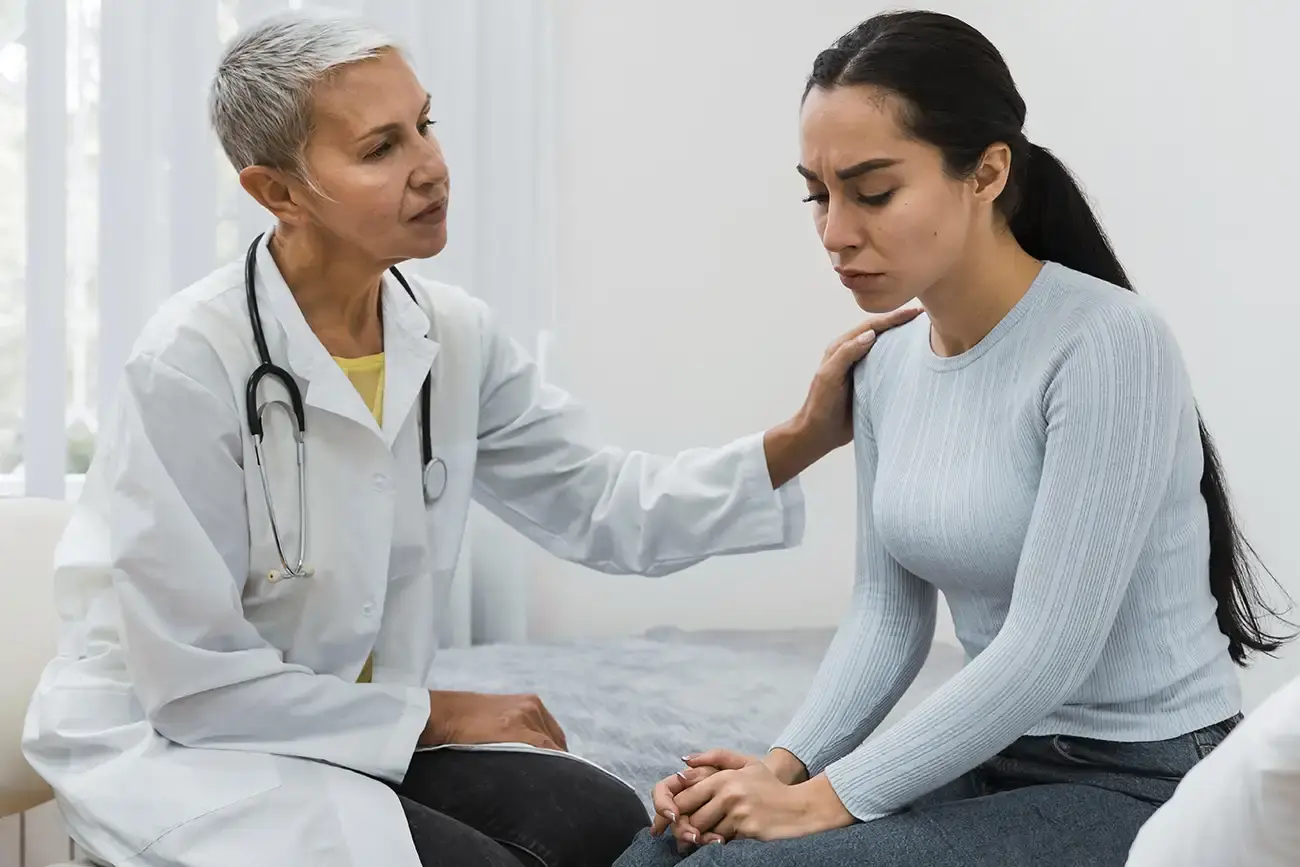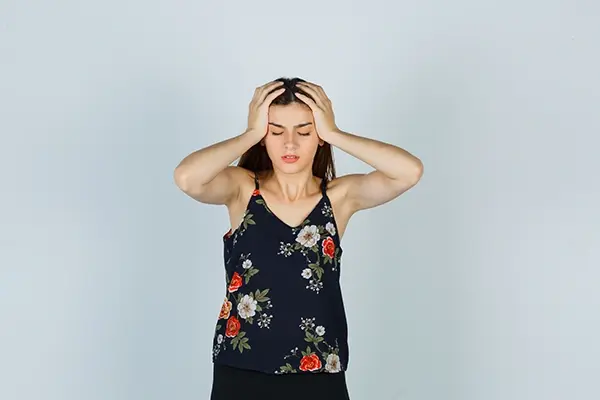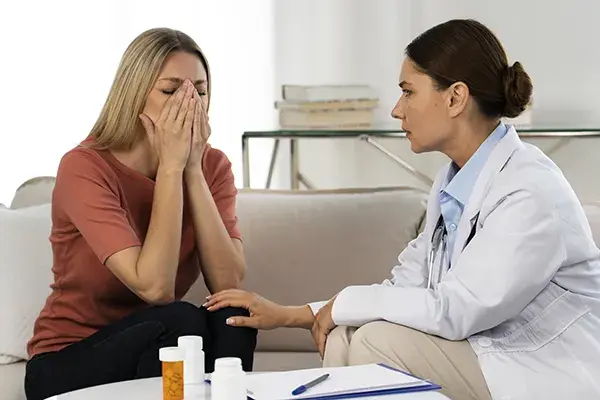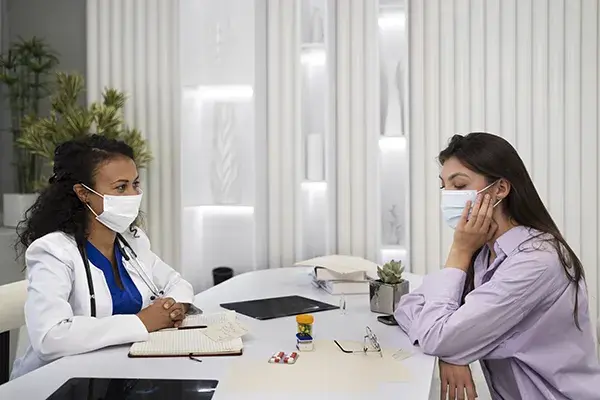What is Menopause?
Menopause is a natural biological process that marks the end of a woman’s menstrual cycles and fertility. It is diagnosed after a woman has gone 12 months without a menstrual period. Menopause typically occurs between the ages of 45 and 55 but can vary widely. This transition period, known as perimenopause, can cause a range of physical and emotional symptoms due to hormonal changes, particularly the decline in estrogen levels.

Symptoms of Menopause
1. Hot Flashes and Night Sweats
Hot flashes are sudden feelings of warmth, often intense, that can spread over the body. They are commonly accompanied by sweating and can occur during the day or night (night sweats).

2. Vaginal Dryness and Discomfort
Reduced estrogen levels can cause vaginal dryness, itching, and discomfort during intercourse.

3. Sleep Disturbances
Many women experience difficulty sleeping during menopause, often due to night sweats or other symptoms.

4. Mood Changes
Hormonal fluctuations during menopause can lead to mood swings, irritability, and an increased risk of depression and anxiety.

5. Weight Gain and Metabolic Changes
Menopause can slow metabolism, leading to weight gain and changes in body composition.

Menopause Care: Treatment Options and Management
1. Hormone Replacement Therapy (HRT)
HRT involves the administration of estrogen and progesterone to relieve menopausal symptoms. It is effective for treating hot flashes, vaginal dryness, and preventing bone loss. However, it may not be suitable for everyone and can have risks, which should be discussed with a healthcare provider.

2. Non-Hormonal Medications
Non-hormonal treatments, such as antidepressants, can help manage hot flashes and mood changes. Vaginal moisturizers and lubricants can alleviate dryness.

3. Lifestyle Modifications
Adopting a healthy lifestyle can significantly improve menopause symptoms. This includes regular physical activity, a balanced diet, maintaining a healthy weight, and avoiding triggers like caffeine and alcohol that can exacerbate hot flashes.

4. Alternative Therapies
Some women find relief from menopause symptoms using alternative therapies such as acupuncture, herbal supplements (e.g., black cohosh, soy isoflavones), and mind-body practices like meditation and yoga.

5. Psychological Support
Counseling and support groups can help women cope with the emotional and psychological challenges of menopause.

How Dr. Ravina Bhesania Can Help
Dr. Ravina Bhesania is a highly experienced gynecologist in Surat, India, specializing in menopause care. With a compassionate and personalized approach, Dr. Bhesania offers comprehensive treatment plans tailored to each patient’s unique needs. She provides expert guidance on managing symptoms through HRT, non-hormonal treatments, lifestyle modifications, and alternative therapies. Dr. Bhesania is dedicated to helping women navigate the menopause transition with confidence and improved quality of life.
FAQs
Conclusion
Menopause is a natural phase of life, but its symptoms can be challenging. Effective menopause care, tailored to individual needs, can greatly improve quality of life. With the expertise of specialists like Dr. Ravina Bhesania in Surat, India, women can receive comprehensive and compassionate care to manage their menopause symptoms effectively. If you are experiencing menopause symptoms, contact Dr. Ravina Bhesania for a consultation and explore your options for personalized menopause care.
Contact Dr. Ravina Bhesania for a consultation and personalized menopause care today.
